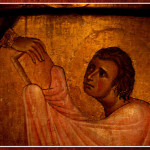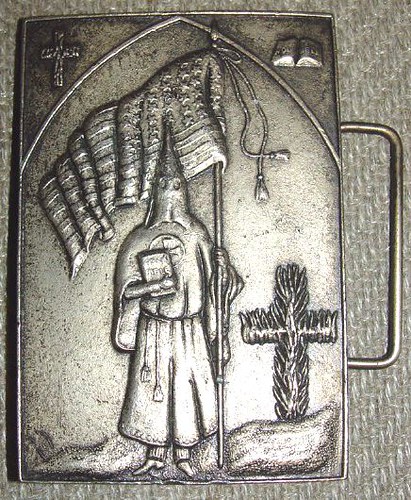We run our website the way we wished the whole internet worked: we provide high quality original content with no ads. We are funded solely by your direct support. Please consider supporting this project.
God in Our Image
We came across this piece written by Jonathan Storment earlier this month and we had to share it here. The title of the piece is Everyday Idolatry: My God. He does a great job of outlining the ways that we twist God into whatever we need him to be to prop up our own agendas. Very insightful.
From the article:
I like the way N.T. Wright talks about how to deal with letting Jesus stand on his own:
“My proposal is not that we know what the word ‘god’ means, and manage to somehow to fit Jesus into that. Instead, I suggest, that we think historically about a young Jew possessed of a desperately risky, indeed apparently crazy vocation, riding into Jerusalem in tears, denouncing the Temple, and dying on a Roman cross–and we somehow allow our meaning for the word “god” to be re-centered around that point.”
In other words, the scandal is not that Jesus is like God. The scandal is that God is like Jesus. He’s a God who picked a certain place and time, and entered into it. He came to show us who he really was…and who he really wasn’t.
Category: General
Tags: Bible, God, Jesus, Jonathan Storment, Religious Idolatry, Religious Violence
Related Reading

Sermon Clip: Twisted Scripture-Hebrews 9
Why must there be the shedding of blood for the forgiveness of sins? Our Twisted Scripture series continues this week as Greg explores Hebrews 9:18-22. This scripture passage is commonly used to support the penal substitutionary atonement theory in which our guilt was transferred to Christ and He was punished on the cross on our…

Part 3: Disarming Flood’s Inadequate Conception of Biblical Authority
Image by Ex-InTransit via Flickr In this third part of my review of Derek Flood’s Disarming Scripture I will offer a critique of his redefined conception of biblical inspiration and authority. I will begin by having us recall from Part I that Flood holds up “faithful questioning” over “unquestioning obedience” as the kind of faith that Jesus…

Penal Substitution View of Atonement: Did God the Father Just Need to Vent?
In this video blog, Greg outlines the penal substitution view of atonement which says that the Father poured out his wrath on Jesus instead of us so that we could be forgiven. This view is very common and you might even be nodding your head in agreement with that description. However, this view creates some…

When Jesus Questioned the Father
Though the sinless Son of God had perfect faith, we find him asking God the Father to alter the plan to redeem the world through his sacrifice—if it is “possible” (Matt. 26:42). As the nightmare of experiencing the sin and God-forsakenness of the world was encroaching upon him, Jesus was obviously, and understandably struggling. So,…

How Should We Do Theology?
Delirious? via Compfight In yesterday’s post, we introduced a way of talking about theology with the use of concentric circles. At the center, is the revelational of Jesus—most keenly revealed on the cross. The next circle is dogma, which includes the central tenants of the historic-orthodox church. The next is what is called “doctrine.” And…

Old Testament Support for the Warfare Worldview
Rebuking Hostile Waters Satan plays a minor role in the Old Testament relative to the New Testament. Instead, the warfare worldview in the Old Testament is expressed in terms of God’s conflict with hostile waters, cosmic monsters, and other gods.Like their Ancient Near Eastern neighbors, ancient Jews believed that the earth was founded upon and…

